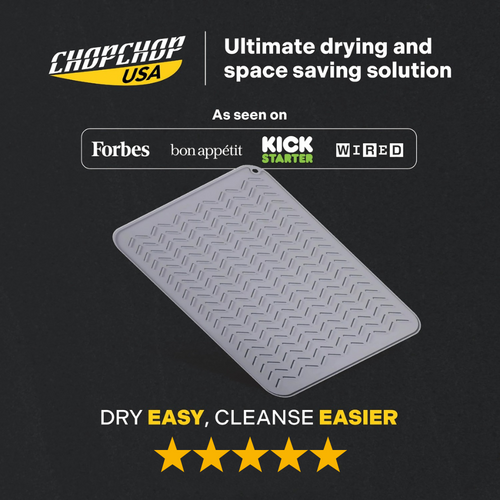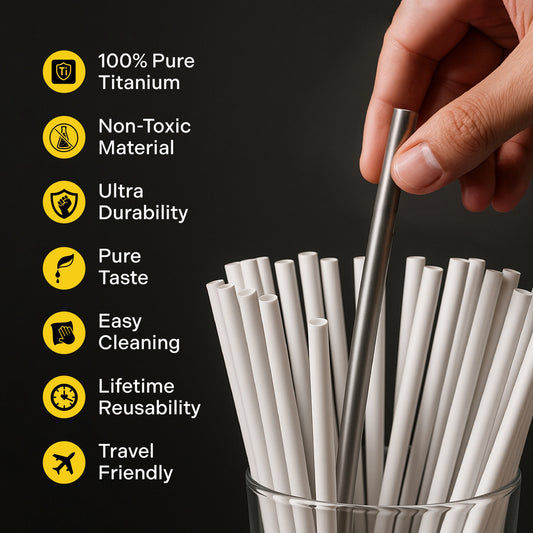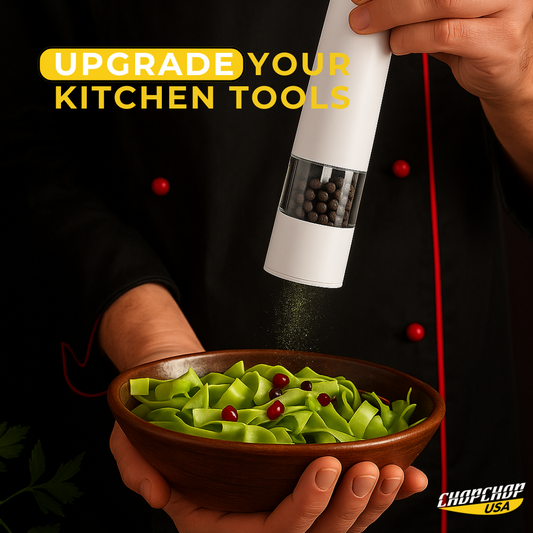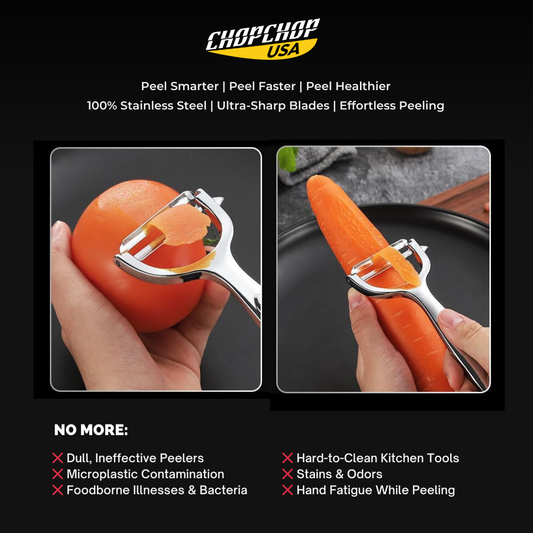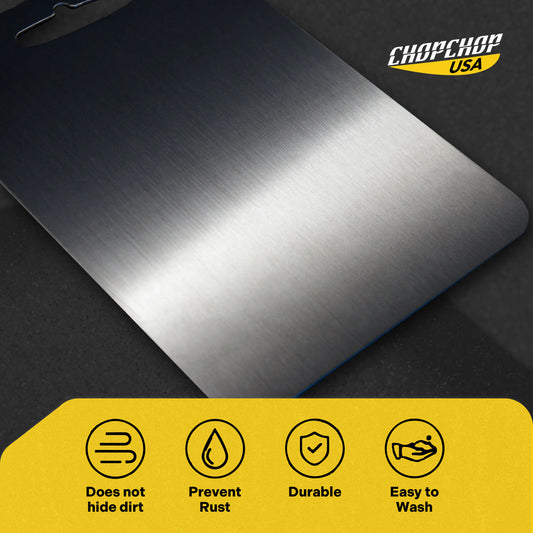Do You Need to Season Stainless Steel Pans? The short answer is no. Unlike cast iron, stainless steel is naturally non-reactive and durable, so it doesn’t require seasoning to stay safe or functional.
In this guide, ChopChop USA will explain do you need to season stainless steel pans, what seasoning a stainless steel pan means, why it’s usually unnecessary, when it might be helpful, and how to cook without seasoning. You’ll also learn tips to prevent sticking and discover the best ChopChop USA stainless steel pans for your kitchen.
What Seasoning a Stainless Steel Pan Means

Seasoning a stainless steel pan involves coating its surface with a thin layer of oil and heating it to create a temporary protective layer. Unlike cast iron, which requires seasoning to prevent rust, stainless steel is already corrosion-resistant and safe for cooking without it.
The main purpose of seasoning stainless steel is to reduce sticking, especially with delicate foods like eggs, fish, or pancakes. It can also improve browning, searing, and make cleanup easier.
Seasoning is optional and does not make stainless steel permanently nonstick. Many home cooks choose to skip this step and rely on proper preheating, oiling, and cooking techniques instead. Understanding do you need to season stainless steel pans helps cooks decide whether this step is necessary.
Why Seasoning Isn’t Necessary for Stainless Steel

Although some cooks season stainless steel pans, it’s not required. Understanding why helps you make informed decisions in the kitchen and answer the question of do you need to season stainless steel pans.
Durable and Non-Reactive Material
Stainless steel resists corrosion and does not leach chemicals into food. This makes it safe and reliable for all types of cooking without requiring a seasoning layer.
Read more: Is Stainless Steel Cookware Safe? Pros and Cons
Proper Cooking Techniques Matter More
Using correct preheating, oiling, and temperature control prevents sticking effectively. Even without seasoning, foods release naturally when the pan is preheated and oiled properly.
Scratches Don’t Affect Performance
Minor scratches from utensils or cleaning do not compromise heat distribution or safety. Stainless steel pans continue to cook evenly and remain non-reactive, making seasoning largely optional.
Read more: Are Scratches on Stainless Steel Pans Safe?
Easy to Maintain
Regular cleaning with mild soap and soft sponges keeps the pan hygienic and functional. Using gentle utensils prevents further wear, allowing your pan to perform beautifully without seasoning.
Read more: How to Clean Stainless Steel Pans So They Last For Years
Cosmetic vs. Functional
Seasoning can enhance appearance or provide a minor nonstick effect, but it does not improve cooking performance in a meaningful way. Understanding this allows cooks to focus on proper technique rather than feeling pressured about do you need to season stainless steel pans.
In short, stainless steel cookware is naturally resilient and reliable. Seasoning is optional, and most users can achieve excellent cooking results without it.
So, Do You Need to Season Stainless Steel Pans?
No, we don’t recommend seasoning stainless steel cookware. While seasoning can add a slight nonstick effect, it’s unnecessary. Stainless steel’s durability, non-reactivity, and excellent heat conduction make it reliable on its own.
Using oil or fat during cooking is enough to prevent sticking, and washing the pan with soap and warm water removes leftover oils. If you were to season, it would need to be repeated after every wash, which is cumbersome and adds little benefit.
Seasoning is mostly cosmetic or for easier cleanup. Proper preheating, applying oil when cooking, and using gentle utensils ensure stainless steel pans perform beautifully every time. This helps answer do you need to season stainless steel pans in practical terms.
When Seasoning Is Most Helpful
While not required, seasoning can be helpful in certain situations when considering do you need to season stainless steel pans.
Cooking Delicate Foods
Eggs, fish, pancakes, and other delicate foods are prone to sticking. A lightly seasoned surface can reduce sticking and make flipping and serving easier.
New Pans with Smooth Surfaces
Brand-new stainless steel pans often have a very smooth finish, which can cause initial sticking. A quick seasoning layer can improve the initial cooking experience and addresses the question of do you need to season stainless steel pans for new pans.
High-Frequency Cooking
If you cook sticky or delicate foods often, seasoning can save time during cleanup and reduce frustration.
Improving Browning and Searing
A seasoned surface can slightly enhance the pan’s ability to create rich browning and searing, giving your dishes better texture and flavor.
Optional Cosmetic Benefits
Seasoning may add a subtle shine to the pan and create a more polished appearance. While this is not necessary for function, it can be aesthetically pleasing for some users.
In general, seasoning is most helpful when cooking sticky foods, using a new pan, or when convenience and cleanup are priorities. Remember, in most cases do you need to season stainless steel pans is optional.
How to Cook with Stainless Steel

Even without seasoning, stainless steel pans perform exceptionally well with proper techniques. By understanding do you need to season stainless steel pans, you’ll know that the key lies in proper heat, oil, and utensil use.
Preheating the Pan
Always heat the pan over medium heat before adding oil or food. Preheating helps prevent sticking and ensures even cooking.
Using the Right Oils
High-smoke-point oils such as canola, grapeseed, or vegetable oil create a temporary barrier between food and pan, reducing sticking and helping sear meats.
Read more: 7 Best and 3 Worst Oils for Stainless Steel Cooking
Avoid Overcrowding
Cook in batches to maintain consistent temperature. Overcrowding lowers heat, causing sticking and uneven browning.
Temperature Control
Adjust heat depending on what you’re cooking. Medium heat is ideal for eggs and pancakes, while medium-high is best for searing meat or sautéing vegetables.
Proper Utensils
Wood, silicone, or bamboo utensils prevent scratching and preserve your pan’s surface. Avoid metal utensils, which can create unnecessary scratches.
Read more: 4 Best Utensils for Stainless Steel Cookware
Cleaning and Maintenance
Wash with mild soap and a soft sponge; avoid abrasive scrubbers. Proper cleaning ensures longevity and maintains performance.
Using these techniques, even unseasoned stainless steel pans can cook eggs, fish, meat, and vegetables effectively. This proves do you need to season stainless steel pans is not mandatory.
How to Prevent Sticking Without Seasoning
Even without seasoning, stainless steel pans can perform beautifully. Sticking is usually a result of temperature, oil, or cooking method—not the pan itself. Here’s how to prevent it, emphasizing that do you need to season stainless steel pans is optional:
Preheat Your Pan Properly
Always preheat your pan over medium heat for a few minutes before adding oil or food. You can test readiness by sprinkling a few drops of water: if they sizzle and dance, the pan is ready. Proper preheating ensures even cooking and reduces sticking.
Use the Right Amount of Oil
Apply a thin, even layer of high-smoke-point oil such as canola, vegetable, or grapeseed oil. This creates a temporary barrier that allows food to release naturally once it sears. Avoid adding oil after the food is already in the pan, as this can increase sticking.
Avoid Overcrowding
Cooking too much food at once lowers the pan’s temperature, leading to sticking. Cook in batches when necessary, giving each piece enough space for even heat distribution.
Allow Food to Release Naturally
Proteins like meat, fish, or eggs will release from the pan once they’re properly seared. Don’t try to flip or move food too early; patience prevents tearing and sticking.
Control Your Heat
Adjust the stove to suit what you’re cooking. Medium heat works well for delicate items like eggs or fish, while medium-high is best for searing meat or sautéing vegetables.
Use Gentle Utensils
Wood, silicone, or bamboo utensils prevent scratching the surface and make flipping or stirring easier. Avoid metal utensils, which can leave scratches that catch food.
Proper Cleaning
Wash with mild soap and a soft sponge. Avoid steel wool or harsh abrasives, which can roughen the surface and increase sticking in the future.
By combining these techniques, you can prevent sticking without seasoning, showing again that do you need to season stainless steel pans is optional.
ChopChop USA - The Best Stainless Steel Pan for Your Kitchen
Upgrade your cooking experience with ChopChop USA stainless steel cookware, designed for durability, safety, and professional performance. These pans are built to handle daily use while maintaining their appearance and functionality.
ChopChop USA Stainless Steel Frying Pan

For home cooks and professionals seeking a reliable, all-purpose pan, the ChopChop USA Stainless Steel Frying Pan delivers consistent performance.
- Premium stainless steel for even heat and long-lasting durability
- Smooth surface for easy cleaning and optional seasoning
- Ideal for sautéing, searing, and pan-frying
- Compatible with all stovetops, including induction
- Ergonomic handle and dishwasher-safe design
Cooking with this pan saves time, improves results, and minimizes cleanup. Its construction ensures long-lasting performance without needing constant maintenance. The pan is also rated as one of the best frying pans in the market.
ChopChop USA Hybrid Nonstick Frying Pan

For those who want the benefits of stainless steel with a stick-resistant surface, the ChopChop USA Hybrid Nonstick Frying Pan is perfect for delicate foods.
- Made of stainless steel with no chemical coating
- Micro-engraved honeycomb surface creates a natural nonstick effect
- Perfect for delicate foods like eggs, fish, and pancakes
- Even heat distribution and scratch-resistant for long-term use
- Oven safe and compatible with all stovetops
The hybrid pan combines stainless steel durability with a stick-resistant surface. It’s ideal for cooks seeking versatility without compromising safety or health. This pan is highly-rated as one of the Best Non Stick Frying Pans 2025.
ChopChop USA pans are designed to last and perform beautifully even without mandatory seasoning. Whether you’re cooking daily meals or experimenting with professional techniques, these pans make cooking easier, safer, and more enjoyable.
Read more:
- Is a Stainless Steel Frying Pan Oven-Safe?
- 3 Ply vs. 5 Ply Stainless Steel Cookware – Which is Better?
- Frying Pan Sizes: What Is the Best Size for a Stainless Steel Pan?
- Top Reasons to Invest in High-Quality Cookware
Conclusion
Do You Need to Season Stainless Steel Pans? The answer is optional. Proper cooking techniques, preheating, and using gentle utensils ensure excellent performance without it. Minor scratches don’t affect safety or cooking. ChopChop USA’s Stainless Steel Frying Pan and Hybrid Nonstick Frying Pan offer durable, versatile cookware for home and professional kitchens.
With quality construction and long-lasting performance, these pans deliver reliable, safe, and stylish cooking. Seasoned or not, ChopChop USA ensures your stainless steel cookware performs beautifully for years. You can explore more of the ChopChop USA cookware collection.
For more amazing recipes, follow me on Facebook and Instagram! If you have any questions about ChopChop USA's products or promotions, please feel free to contact us at support@chopchopusa.com. Our dedicated team is available 24/7 and always happy to assist you.
Frequently Asked Questions
1. Do you need to season stainless steel pans?
No, seasoning is optional. Proper cooking techniques are enough.
2. Can seasoning improve nonstick performance?
Yes, it helps with delicate foods but is not required for safety.
3. Will unseasoned stainless steel stick?
Proper preheating, oiling, and batch cooking prevent sticking.
4. How often should I season my stainless steel pan?
Only if desired for nonstick effect or cosmetic reasons.
5. Can scratches affect stainless steel performance?
Minor scratches only affect the look of the pan and do not impact heat distribution or safety.


